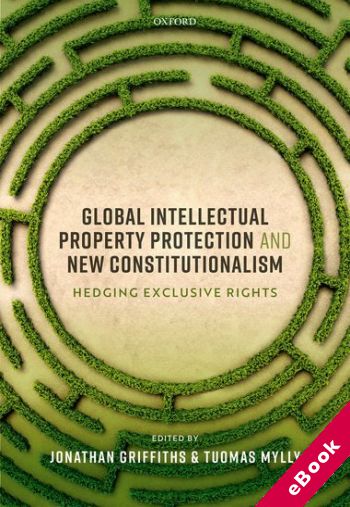
The device(s) you use to access the eBook content must be authorized with an Adobe ID before you download the product otherwise it will fail to register correctly.
For further information see https://www.wildy.com/ebook-formats
Once the order is confirmed an automated e-mail will be sent to you to allow you to download the eBook.
All eBooks are supplied firm sale and cannot be returned. If you believe there is a fault with your eBook then contact us on ebooks@wildy.com and we will help in resolving the issue. This does not affect your statutory rights.
The constitutionalization of intellectual property law is often framed as a benign and progressive integration of intellectual property with fundamental rights. Yet this is not a full or even an adequate picture of the ongoing constitutionalization processes affecting IP. This collection of essays, written by international experts and covering a range of different areas of intellectual property law, takes a broader approach to the process. Drawing on constitutional theory, and particularly on ideas of “new constitutionalism”, the chapters engage with the complex array of contemporary legal constraints on intellectual property law-making. Such constraints arising in international intellectual property law, human rights law (including human rights protection for right-holders), investment treaties, and forms of private ordering.
This collection aims to illuminate the complex role of this "constitutional" framework, by analysing the overlaps, complementarities, and conflicts between such forms of protection and seeking to establish the effects that this assemblage of global and regional norms has on legal reform projects and interpretations of IP law. Some chapters take a broad theoretical perspective on these processes. Others focus on specific situations in which the relationship between intellectual property law and broader "constitutional" norms is significant. These contexts range from Art 17 of the EU's Digital Single Market Directive, to the implementation of harmonized trade secrets protection, from the role of Canada's Charter of Rights to the impact of the social model of property in Brazil.